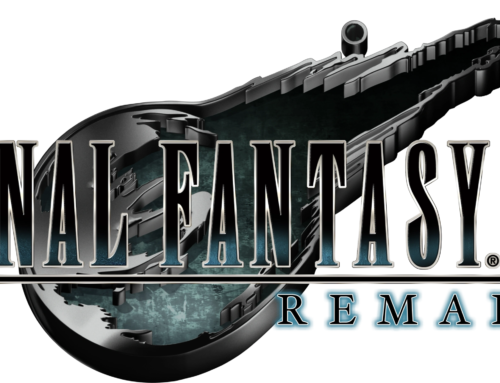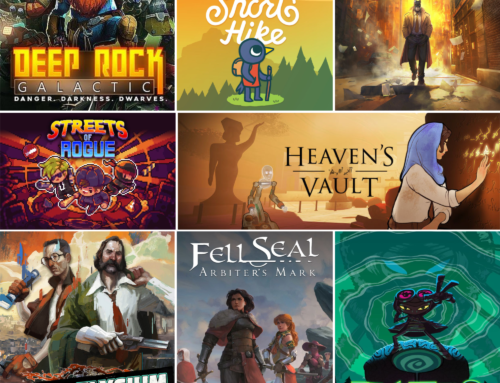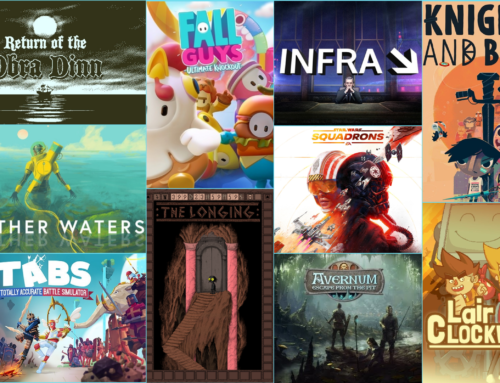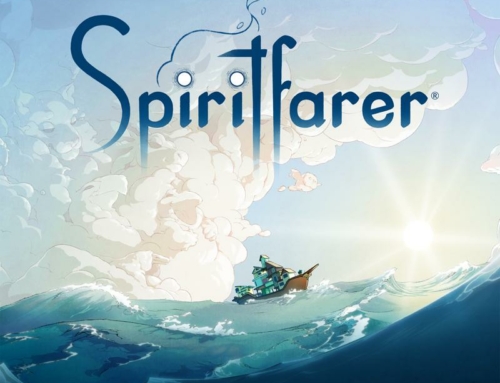Pet peeve of mine: back when I read Gamespot, I noticed that every year – bar none – they claimed that it had been one of the best years for gaming since X (usually 1998). They had no sense of relativity. It was embarrassing.
That said: 2011 was, in my opinion, the best year for gaming since, I dunno, 2000? And probably better. Purely for my subjective tastes, mind you; I’m not sure the industry as a whole made a great leap forward, though I do think the greater variety among AAA titles was a step in right direction.
Most years I struggle to make a list of ten of games I really loved. This year I have a list of games that I whole-heartedly endorse, and even more that I haven’t had a chance to play. There are, in fact, so many presumably-great games I haven’t touched that it would be insincere of me to make any sort of “Best of 2011” list. Instead, I’ll just list five games I really, really liked, with more to come.
Deus Ex: Human Revolution
Like pretty much any devote Deus Ex fan, I had some issues with this. Third person popped up more than I’d like. My decisions never really carried the weight I felt they should. The plot was too sparse. And, of course, the enormously stupid boss fights. But it also did so much right, so much more than I expected. Both the art design and the soundtrack would be in any Top Ten I’d make in those respective categories. The combat was excellent, which was a particular surprise given its progeny. And the stealth worked. It worked so well that I won’t be surprised if Thief 4 ends up being the better game. At the end of the year, I may have had more fun with Skyrim; but Human Revolution was, I believe, the greater accomplishment. Eidos Montreal was fighting an uphill battle in trying to make a game that was both a worthy successor to the original and something that could appeal to a mass audience. Somehow, they pulled it off.
Bastion
There’s no fair way to compare this Xbox Live Indie Game That Could to sprawling, big-budget releases like Skyrim or Human Revolution, which is why doing any sort of hard ranking is pretty stupid (even if they are great for discussion). Bastion reminds me of Portal in that it is a game that I can’t find any fault with. Every element of it is fantastic on its own, and it is short enough that it leaves you wanting more. It may not be perfect, but it is without overt flaws.
The Elder Scrolls V: Skyrim
I’m still in the midst of this one, and have probably seen no more than a third of its content; yet I’ve logged enough hours that I feel I have a good enough grasp of it to put it on this list. This is on the opposite end of the spectrum from Bastion: there is a gaping chasm between Skyrim and perfection, and I could easily make a list of 100 things wrong with the game. Yet at least some of this is forgivable because of its scope in ambition: so much is wrong simply because there is so much, and the vast majority of the muchness is wonderful. Human Revolution gets a higher spot because there is a real sense that Bethesda was, at times, coasting, particularly on aspects relating to the PC release (modders designed a better UI in a matter of days) and role-playing (it doesn’t really want you to do it, which is a bummer for a theoretically non-linear RPG). But set against just how enjoyable the province of Skyrim is to inhabit, these are quibbles. It will only become better once the Construction Set comes out; I won’t be surprised if this is the greatest modding platform since the Source engine was first released. A multiplayer mod is already in the works, and may actually be feasible.
Atom Zombie Smasher
The above three titles have all earned many an accolade, and will inevitably be featured on various big award lists. Of Atom Zombie Smasher, I’ve heard nary a peep. It’s such a fantastic creation that I can only guess that:
- Not many people played it, and
- It is suffering from being released early in the year.
But hey, that’s why I’m writing this. Atom Zombie Smasher is exactly what a one-man creation should be: tightly focused on being as awesome as it can be within the small space it’s carved out. At first glance, one might dismiss it choosing that space in the first place, since AZS is yet another game about zombies overrunning cities. But whereas every previous game has used zombies in a typical horror-movie-monster sense, AZS is outright clinical. You’re trying to evacuate as many citizens as you can before the zombies (“Zed”) overrun the city and you must flee. It’s a game about saving a civilization that almost certainly can’t be saved. Winning the game on the default settings isn’t impossible, but it’s pretty close.
Which is kind of the point. AZS tells its story almost entirely through its gameplay mechanics, something that is normally restricted to “persuasive games” like McDonald’s Video Game and Harpooned!. It shouldn’t be. Combine this with the hip, tongue-in-cheek style that Brendon Chung brings to every one of his creations, and you’ve got a real winner.
Frozen Synapse
Frozen Synapse is, on the surface, an extremely simple strategy game. You have a small, randomly generated arena, and the fighting takes place on a two-dimensional plane. There are only five unit types, and you never have all of them at once. Your characters are basic humanoids whose only abilities are moving, spotting enemies, and shooting them.
Yet the designers realized that while they were making a “simultaneous turn based” mode (in which each player inputs orders, which combine and activate in real time) they could allow each player to input orders for the opponent’s units and “simulate” what would happen if the opponent actually carried it out. And then give their orders to counter appropriately. But, of course, this is only useful if you’ve read your opponent well, AND if they haven’t anticipated your actions.
Frozen Synapse is thus the closest thing to poker I’ve ever seen in video games: simple mechanics made enormously complex by adding a psychological element. Playing with a good player, there will be so many feints and misdirections as each tries to simultaneously read his opponent’s plans while obfuscating his own.
Every time I play a match, I feel like I’m barely scratching the game’s surface. I suspect that people will be playing Frozen Synapse long after like the likes of Battlefield 3 and Modern Warfare 2 have been replaced by newer and slicker shooters. It’s hard to achieve any sort of longevity in such a technology-driven medium, but I’ll be damned if Frozen Synapse doesn’t have the design to pull it off.





Leave A Comment